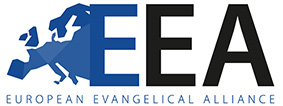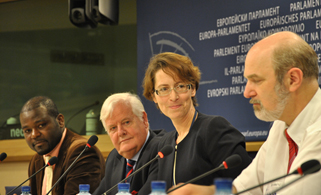Latest Posts
-

Fourth mark of mission: Transform Society
- Deeply Rooted, NEWS, NEWSLETTERS, SLIDER
- April 9, 2024
-

Bible & Culture 2.0
- Deeply Rooted, NEWS, NEWSLETTERS, SLIDER
- April 9, 2024
-

EFN Bridge 2024 Conference
- Deeply Rooted, NEWS, NEWSLETTERS
- April 9, 2024
-

-

Call to Action - General Assembly 2019
- ISSACHAR PROJECT, NEWS
- February 15, 2024
Receive the EEA newsletter!



 What are the principles by which RCCG plants churches in Europe and how do these principles differ from majority population churches? What new aspects does the RCCG bring to the European church landscape?
What are the principles by which RCCG plants churches in Europe and how do these principles differ from majority population churches? What new aspects does the RCCG bring to the European church landscape?




